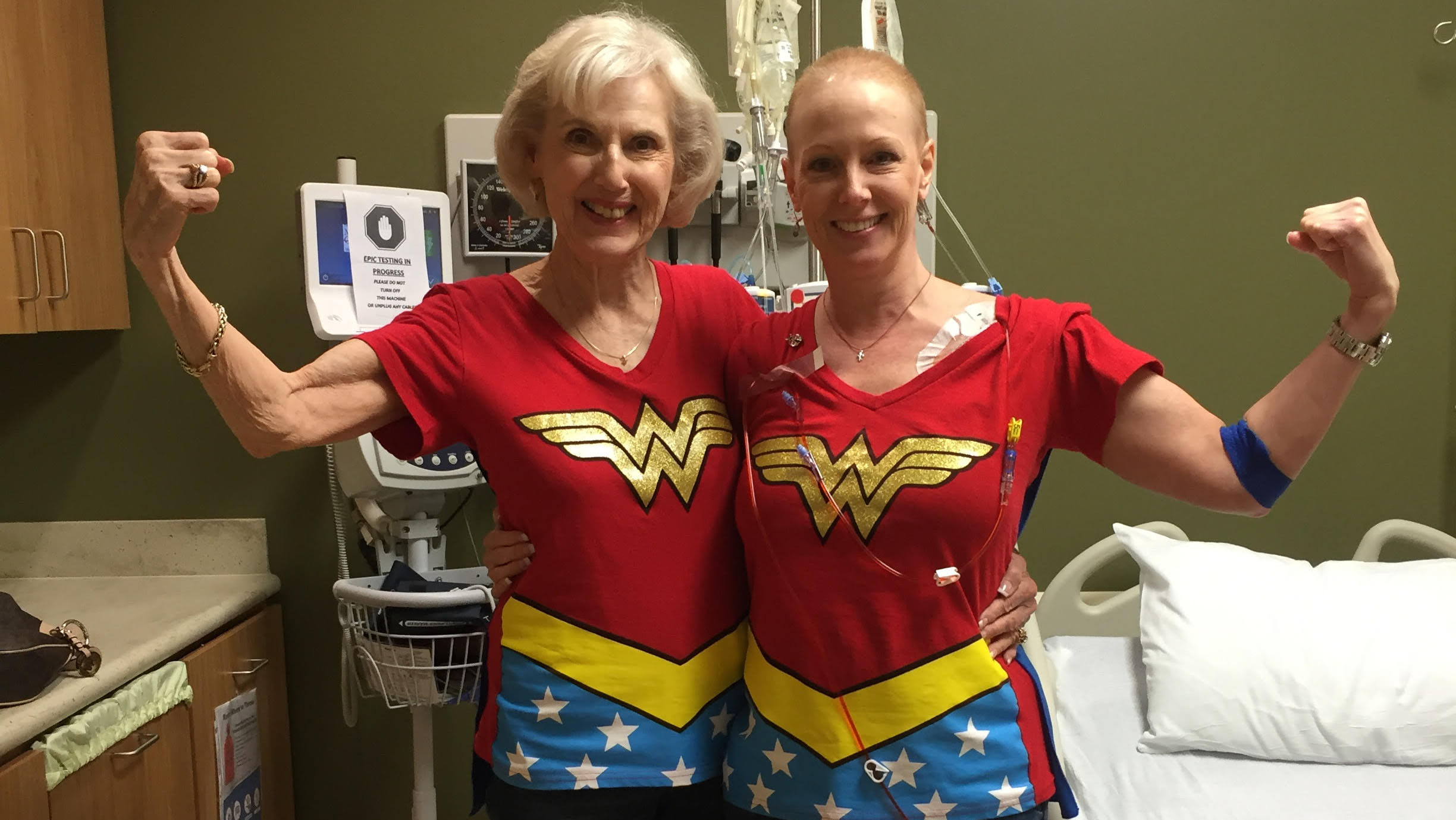- Diseases
- Acoustic Neuroma (14)
- Adrenal Gland Tumor (24)
- Anal Cancer (66)
- Anemia (2)
- Appendix Cancer (16)
- Bile Duct Cancer (28)
- Bladder Cancer (68)
- Brain Metastases (28)
- Brain Tumor (230)
- Breast Cancer (716)
- Breast Implant-Associated Anaplastic Large Cell Lymphoma (2)
- Cancer of Unknown Primary (4)
- Carcinoid Tumor (8)
- Cervical Cancer (154)
- Colon Cancer (164)
- Colorectal Cancer (110)
- Endocrine Tumor (4)
- Esophageal Cancer (42)
- Eye Cancer (36)
- Fallopian Tube Cancer (6)
- Germ Cell Tumor (4)
- Gestational Trophoblastic Disease (2)
- Head and Neck Cancer (6)
- Kidney Cancer (124)
- Leukemia (344)
- Liver Cancer (50)
- Lung Cancer (288)
- Lymphoma (284)
- Mesothelioma (14)
- Metastasis (30)
- Multiple Myeloma (98)
- Myelodysplastic Syndrome (60)
- Myeloproliferative Neoplasm (4)
- Neuroendocrine Tumors (16)
- Oral Cancer (100)
- Ovarian Cancer (170)
- Pancreatic Cancer (166)
- Parathyroid Disease (2)
- Penile Cancer (14)
- Pituitary Tumor (6)
- Prostate Cancer (144)
- Rectal Cancer (58)
- Renal Medullary Carcinoma (6)
- Salivary Gland Cancer (14)
- Sarcoma (236)
- Skin Cancer (296)
- Skull Base Tumors (56)
- Spinal Tumor (12)
- Stomach Cancer (60)
- Testicular Cancer (28)
- Throat Cancer (90)
- Thymoma (6)
- Thyroid Cancer (98)
- Tonsil Cancer (30)
- Uterine Cancer (78)
- Vaginal Cancer (14)
- Vulvar Cancer (18)
- Cancer Topic
- Adolescent and Young Adult Cancer Issues (20)
- Advance Care Planning (10)
- Biostatistics (2)
- Blood Donation (18)
- Bone Health (8)
- COVID-19 (362)
- Cancer Recurrence (120)
- Childhood Cancer Issues (120)
- Clinical Trials (624)
- Complementary Integrative Medicine (24)
- Cytogenetics (2)
- DNA Methylation (4)
- Diagnosis (230)
- Epigenetics (6)
- Fertility (64)
- Follow-up Guidelines (2)
- Health Disparities (14)
- Hereditary Cancer Syndromes (122)
- Immunology (18)
- Li-Fraumeni Syndrome (8)
- Mental Health (118)
- Molecular Diagnostics (8)
- Pain Management (62)
- Palliative Care (8)
- Pathology (10)
- Physical Therapy (18)
- Pregnancy (18)
- Prevention (894)
- Research (390)
- Second Opinion (74)
- Sexuality (16)
- Side Effects (604)
- Sleep Disorders (10)
- Stem Cell Transplantation Cellular Therapy (216)
- Support (404)
- Survivorship (322)
- Symptoms (184)
- Treatment (1774)
6 ways to cope with chemobrain
3 minute read | Published February 24, 2014
Medically Reviewed | Last reviewed by an MD Anderson Cancer Center medical professional on February 24, 2014
You might forget an appointment, or where you last saw your car keys. Or you might struggle with remembering the name of an acquaintance you run into at the grocery store. Sometimes after chemotherapy, people experience side effects of cancer treatment including "foggy" moments or lapses in memory that can be frustrating, particularly since it can linger for a few months to long after chemotherapy is complete. Chemobrain can be challenging, but there are methods to help you cope.
Keep a calendar
Between work, family and social engagements, we all have a lot on our plates. Chemobrain can make keeping up with dates and appointments even more difficult. Spend time entering important dates in your calendar and check it regularly. Similarly, make lists of tasks you need to accomplish and cross them off when you've completed them.
Rely on a friend
When you visit your doctor, make sure you mention your symptoms. Take a friend or family member along with you to your appointments and ask them to take notes. Physician appointments can be overwhelming, so you'll want to have detailed information about what you discussed and suggestions for treatment. If a supporter can't accompany you, use a recorder to tape the conversation to make sure you didn't miss anything important. Likewise, make a list of your questions or concerns before your visit to make sure you've covered everything.
Exercise your body and your brain
Even moderate exercise a few times a week can help improve memory function. Further, exercise can help with depression and fatigue that can accompany chemobrain. But don't stop with working out your body. Exercise your brain as well. Work on crossword puzzles, number games or other mentally stimulating activities that give your brain power a boost.
Set a routine
As much as possible, following the same routine will help keep you on track. Simple tasks, like putting your keys in the same place everyday and sticking to a normal schedule will help you stay focused. Keep in mind that deviating from your routine can be distracting.
Get plenty of rest
Being overly tired can wear on anyone's memory. Get the sleep you need and take breaks during the day to wind down and relax. When your schedule gets hectic, you're more likely to become absent minded. Take time every day to stop and unwind. If you're experience trouble sleeping, our Sleep Center can help you improve your sleep hygiene.
Eat right
Load up on vegetables and eat properly balanced meals. Good nutrition is essential to your overall health, including your mental faculties. Keep a food journal so you can track how well you're eating.
MD Anderson offers nutrition services to help patients cope with diet and appetite issues during and after cancer treatment.
While patients have expressed frustration with memory challenges after cancer care for a long time, it's only been in recent years that the medical community has begun to study its causes and its treatments. More studies need to be done, but patients with chemobrain symptoms usually find that sticking to routines and writing down their schedules, activities and tasks help to alleviate some of the fogginess they occasionally feel.
If you find yourself fumbling for the right word or puzzling over a recent event, make sure you tell those around you what you're experiencing. We've all forgotten things we needed to remember, and your family and friends will understand and relate.
Janet Tu is an assistant professor of General Oncology at MD Anderson in Sugar Land.
Related Cancerwise Stories

If you find yourself fumbling for the right word or puzzling over a recent event, make sure you tell those around you what you're experiencing.
Janet Tu, M.D.
Physician





